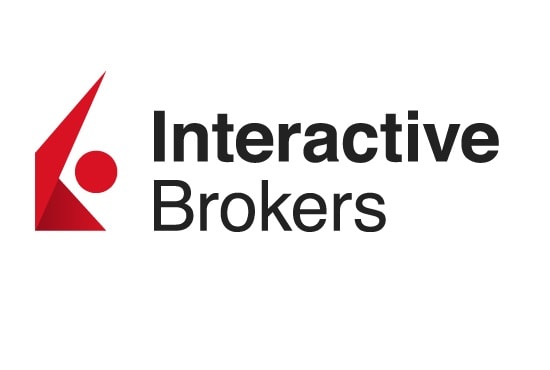| ||
|---|---|---|
J.P. Morgan Self Directed Investing | E-Trade | |
Monthly Fee | $0
$0 online commission on U.S. listed stocks and ETFs and $0.65 per-contract | 0% – 0.35%
0% on stocks and ETFs in self directed brokrage, 0.35% for Core Portfolio Robo Advisor
|
Account Types | Brokerage, Retirement | Brokerage, Retirement |
Savings APY | 0.01% – 3.99% | 3.75%
|
Minimum Deposit | $0 | $0 |
Best For | Existing Chase Customers, Active Investors Looking To Minimize Fees | Beginners, Traders, Robo Advisor |
Read Review | Read Review |
JPM Self-Directed vs E-Trade: Compare Features
JP Morgan is ideal for those seeking a simpler, integrated banking and investing experience with great tools for the average investor.
E-Trade | JPM Self-Directed Investing | |
|---|---|---|
Investing Options | Full Access To Almost Any Asset | 800 stocks and ETFs, 8,000+ mutual funds |
Investing Types | Stocks, Options, Futures, ETFs, Bonds, Mutual Funds | Stocks, Options, ETFs, Fixed Income, Mutual Funds |
Automated Investing | Yes | No |
Paper Trading | No | No |
IPO Access | Yes | No |
Dedicated Advisor | Yes | No |
Tax Loss Harvesting | Yes | No |
E*TRADE excels in providing sophisticated tools and broader investment options for more active and knowledgeable investors.
-
Self Investing And Fundamental Analysis Options
While JPM may be better for the average investor looking for simplicity, E-Trade is our winner in this category, mainly due to its extensive investing options and features such as IPO access and paper trading.
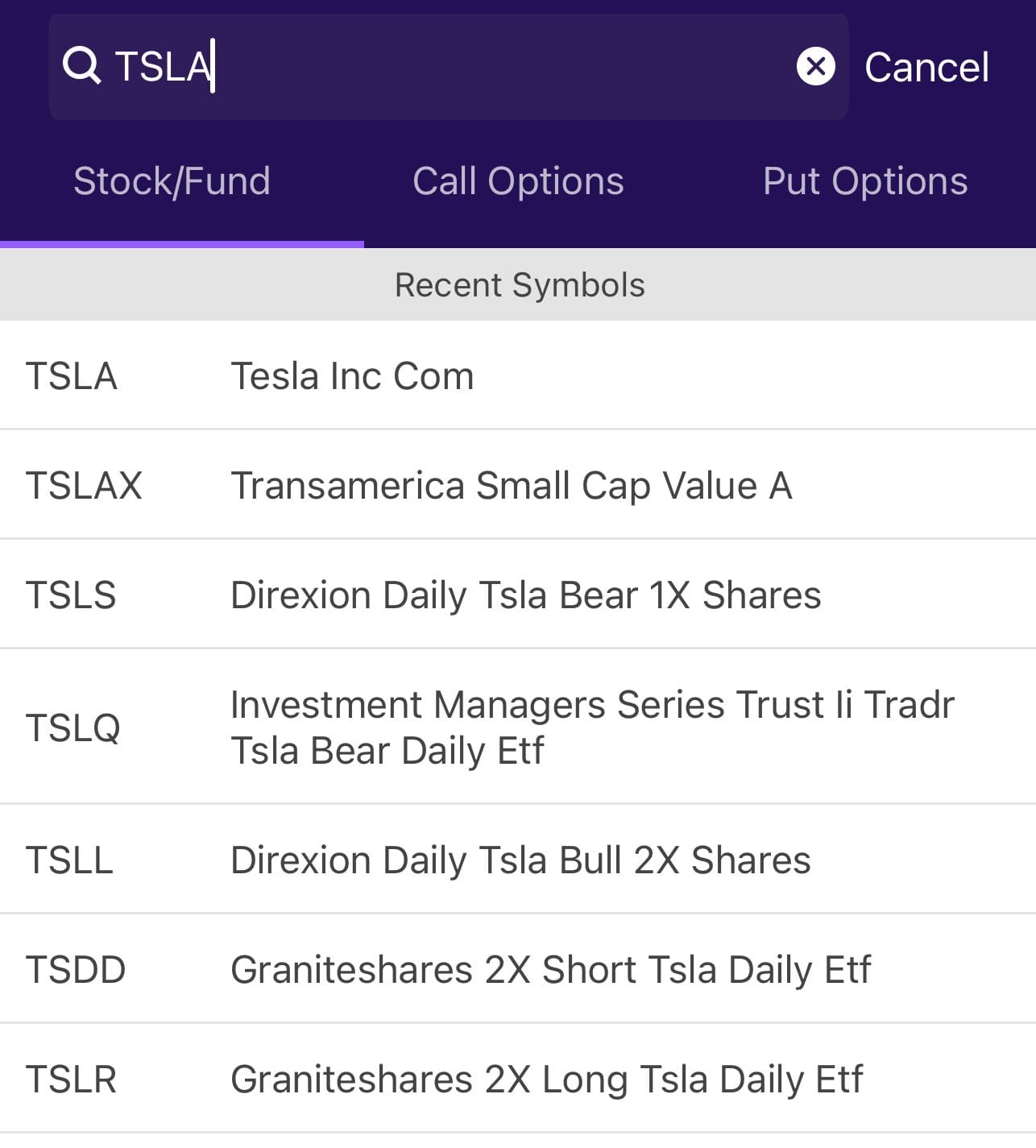
E-Trade's fundamental analysis tools are robust enough for most investors, providing a comprehensive view of a company’s financial health and market position
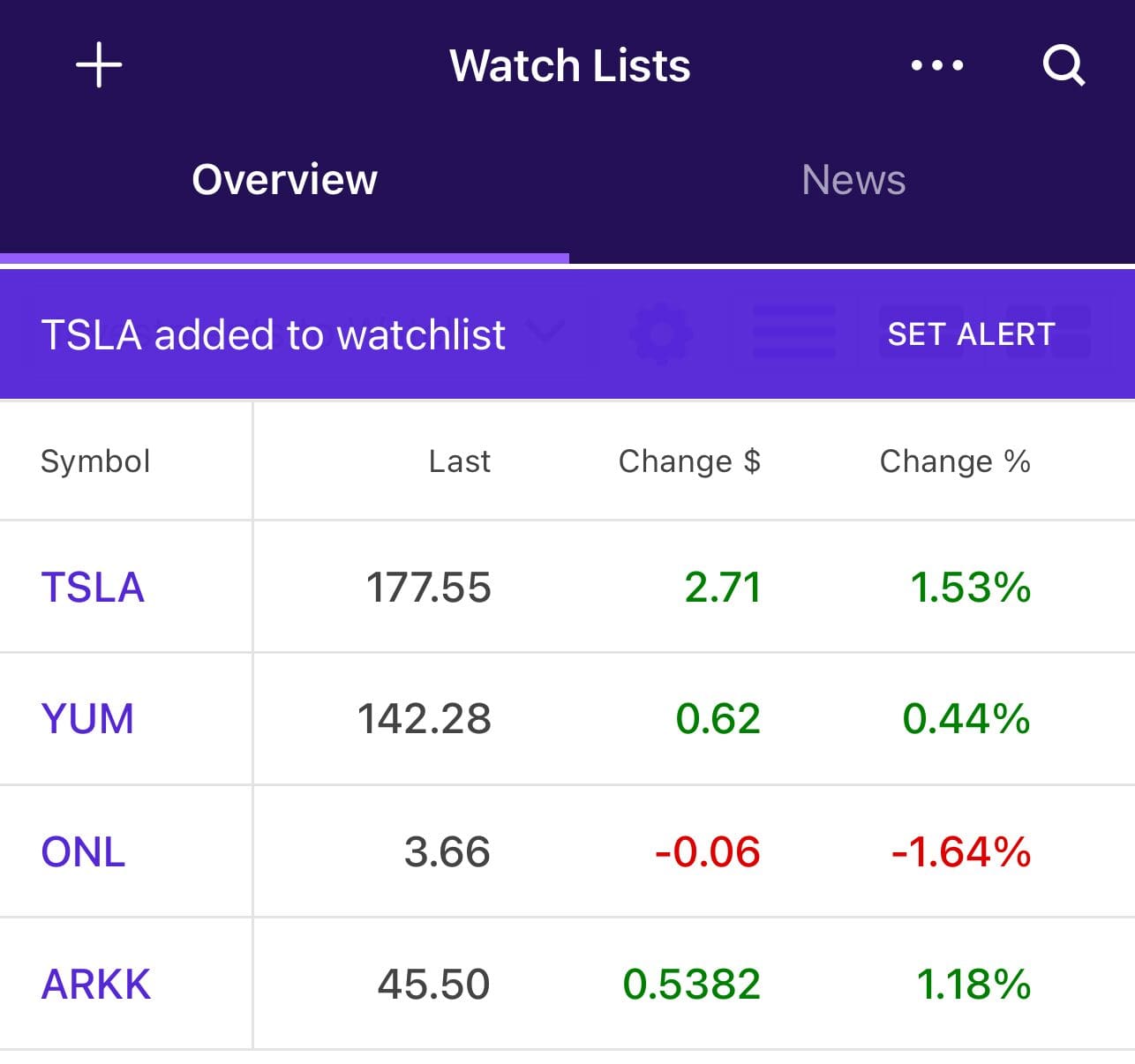
The platform provides access to a wide range of research reports, data, and analysis to help investors make informed decisions. Key features include detailed stock screeners, analyst ratings, earnings reports, and financial statements.
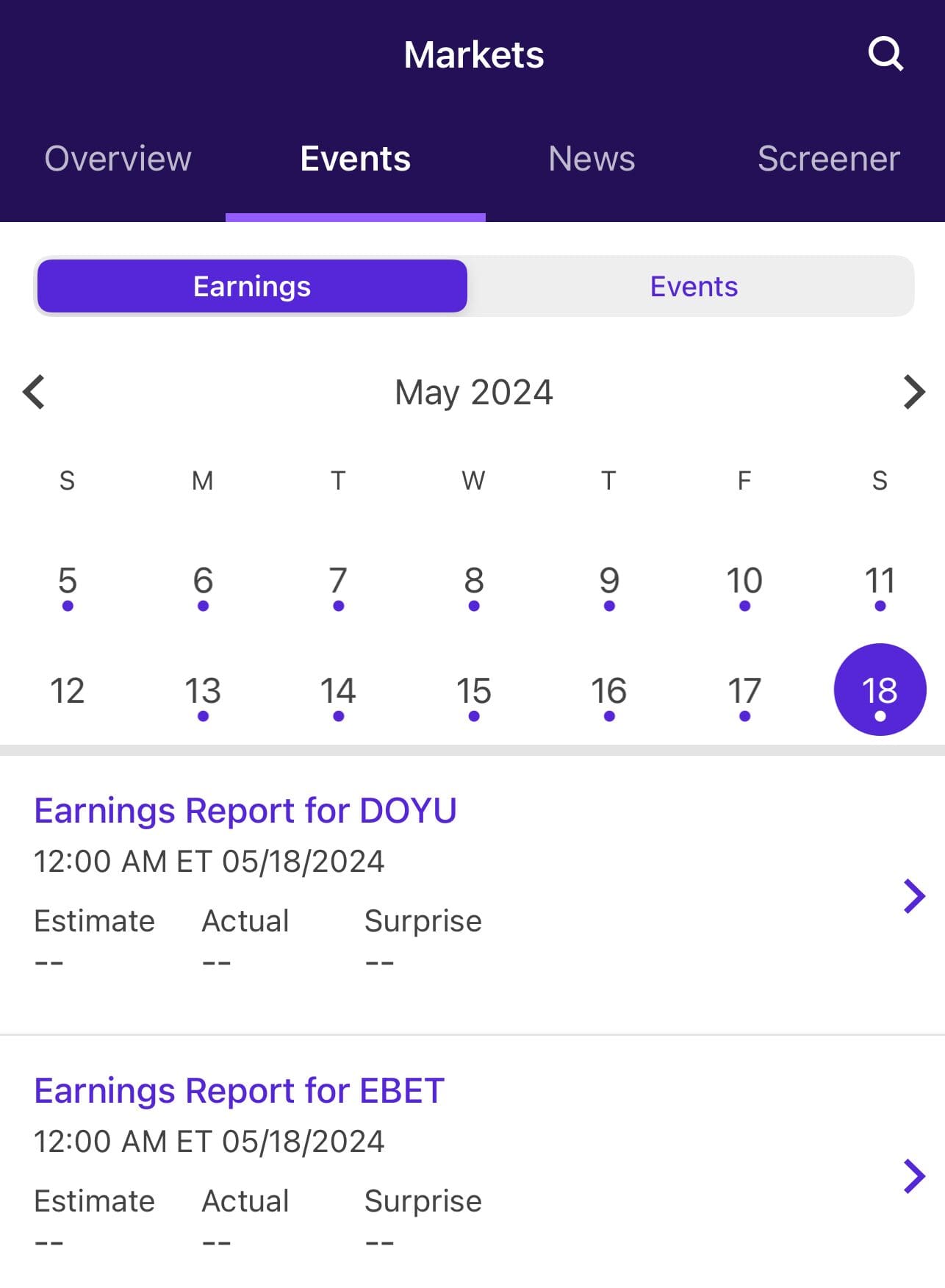
For those who want to dive deeper, E-Trade offers tools to compare company fundamentals, such as revenue, profit margins, and debt levels, across different companies.
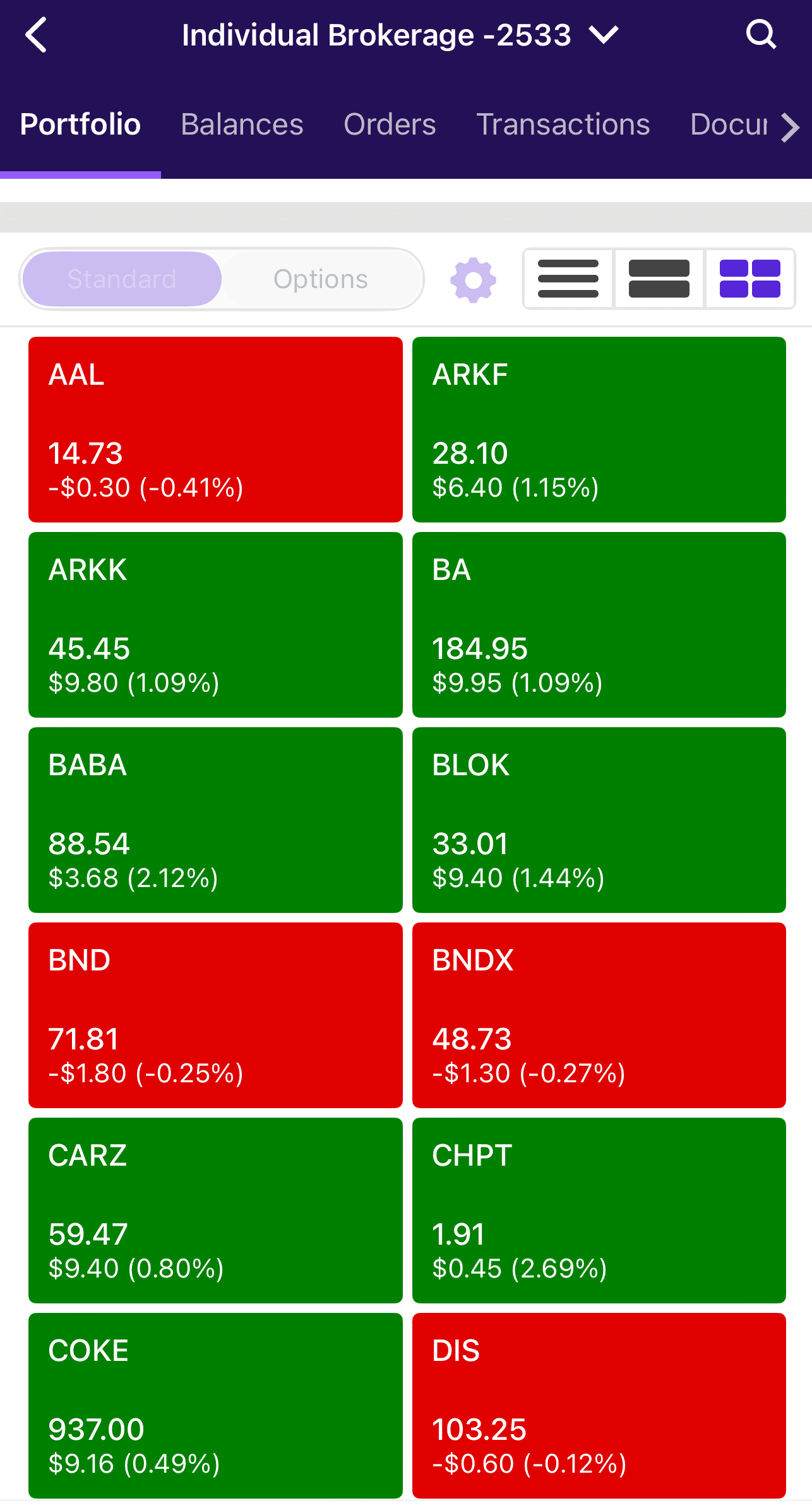
On the other hand, JP Morgan Self-Directed Investing offers commission-free trades on stocks, ETFs, and mutual funds, with fractional shares available.
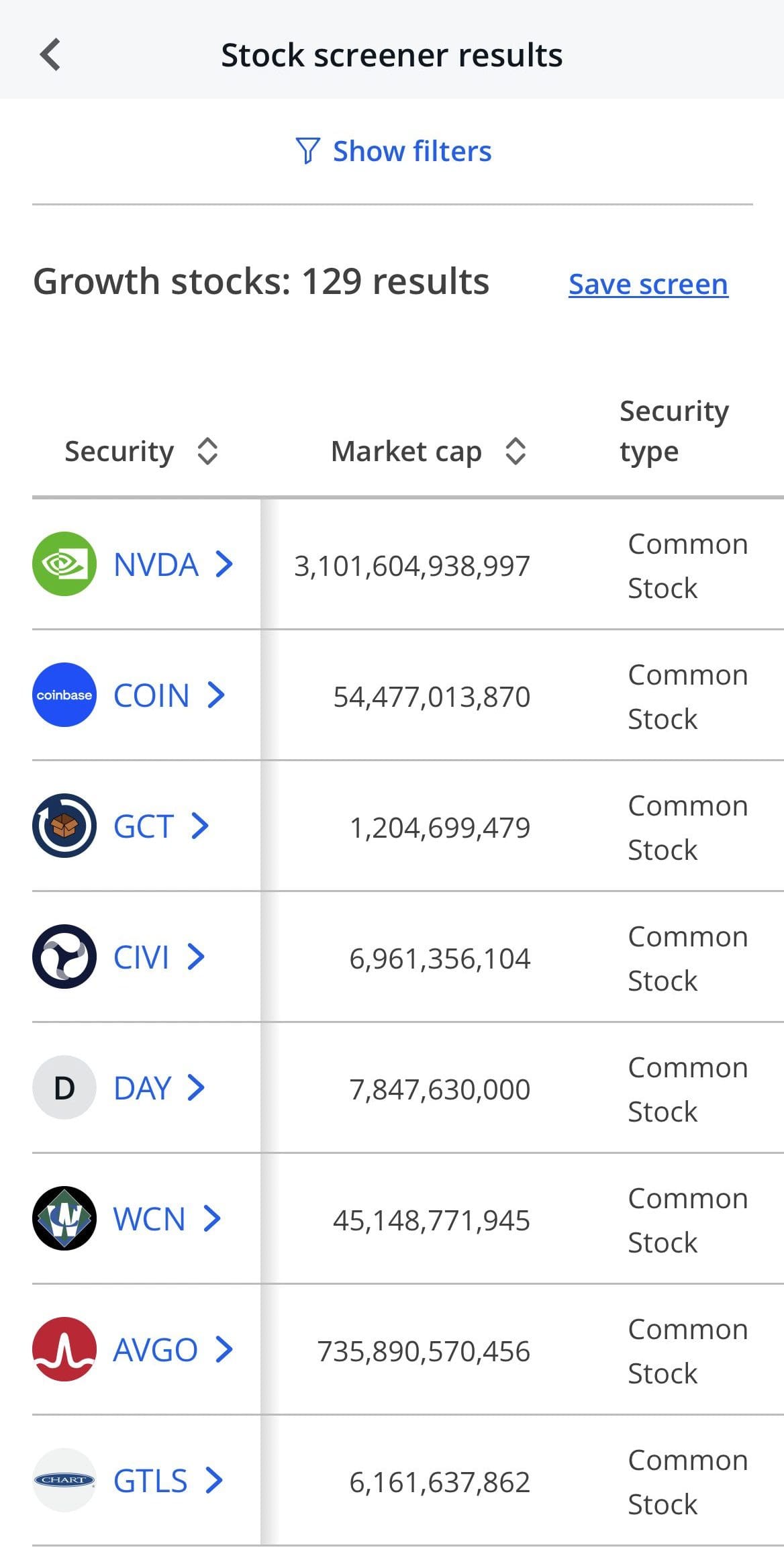
For individual stocks, customers have access to recent analyst updates, statistics, press releases, and the latest news, providing comprehensive information to support informed investment decisions.
Investors can take advantage of features like weekly economic reports, watchlists, and asset allocation charts.

JPM also offers good options for investors focused on socially responsible investing (SRI) and environmental, social, and governance (ESG) options.
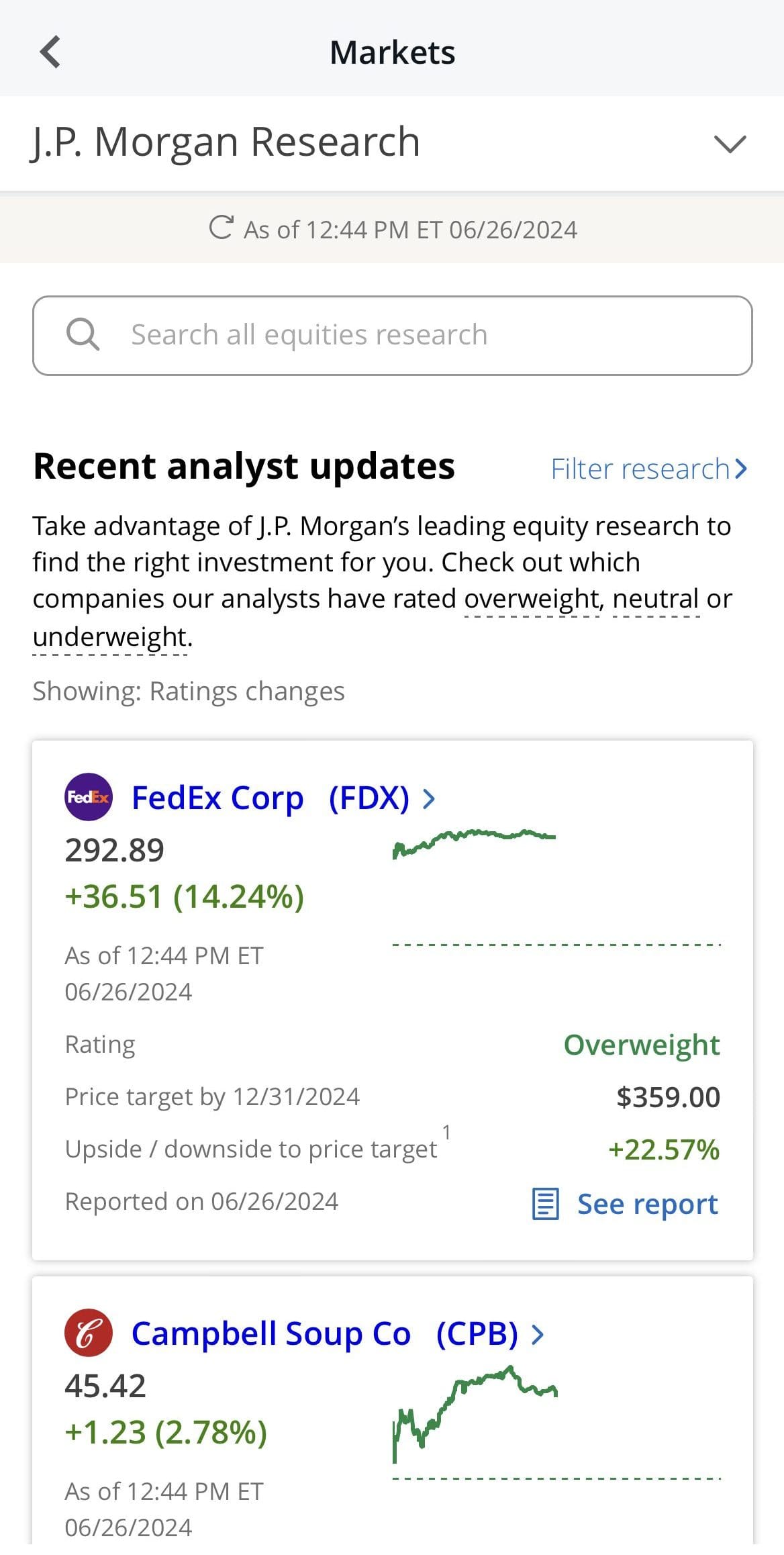
-
Trading Options And Technical Analysis Tools
Both E-Trade and JP Morgan Self-Directed Investing offer excellent technical analysis tools for the average trader.
E-Trade also excels at providing a seamless mobile trading experience. Its Power E-Trade platform offers advanced tools like customizable options chains and risk management features, but it does so in an intuitive and easy-to-navigate way.
One of the standout features is the ability to overlay multiple technical indicators, such as moving averages, Bollinger Bands, and Relative Strength Index (RSI), on a single chart.
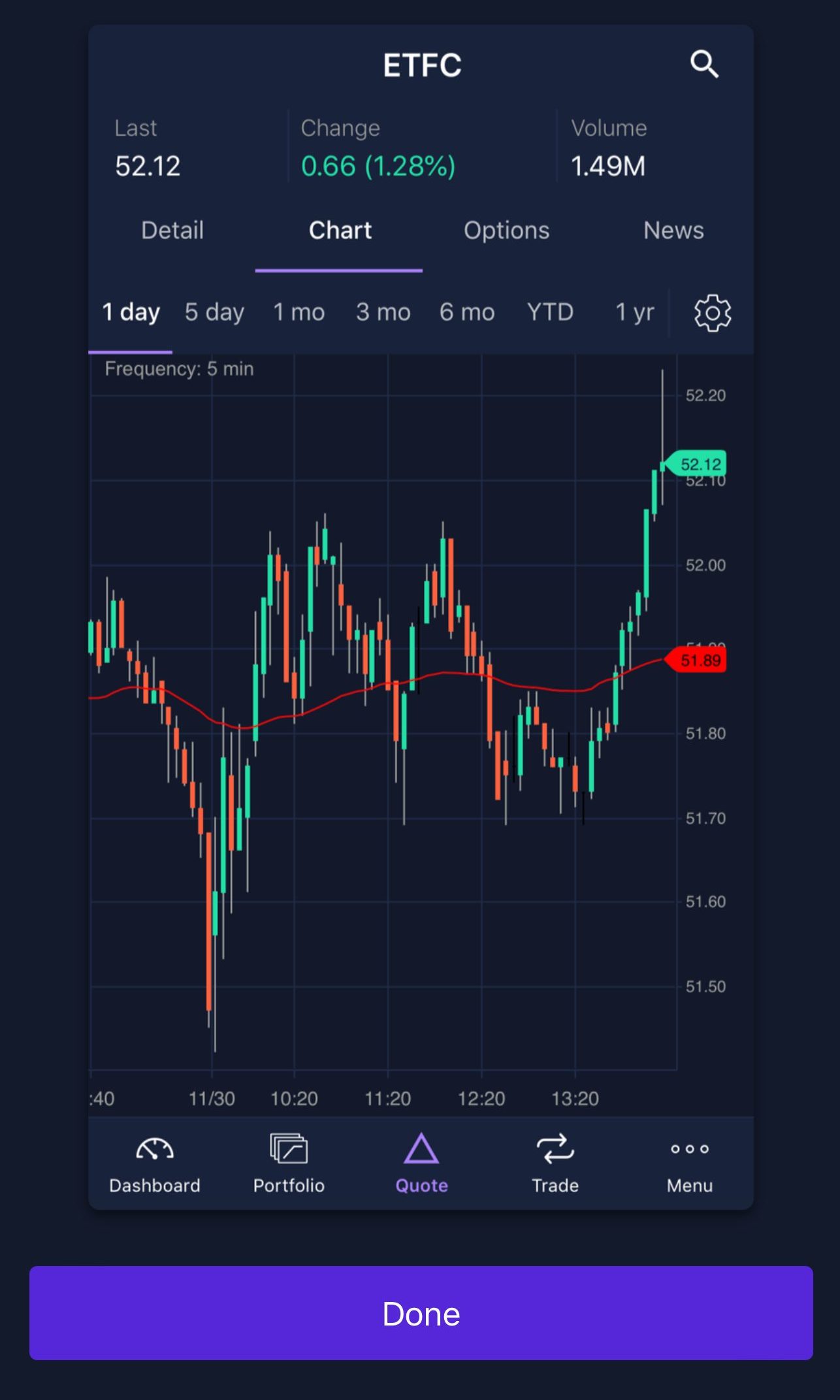
JP Morgan Self-Directed Investing is great if you want to dabble in options trading without getting overwhelmed by too many bells and whistles.

For trading, JPM offers essential tools like charting and stock screeners. When it comes to technical analysis, customers can generate specific graphs based on various indicators such as volume, momentum, and trends.
Additionally, traders can customize their technical views by adding features like Bollinger Bands, oscillators, volatility measures, and RSI to enhance their trading decisions.
-
Robo Advisor And Automated Investing
E-Trade’s Core Portfolios is our winner here, as JP Morgan Self-Directed Investing does not offer a traditional robo-advisor, which can be a drawback if you’re looking for a hands-off investment approach.
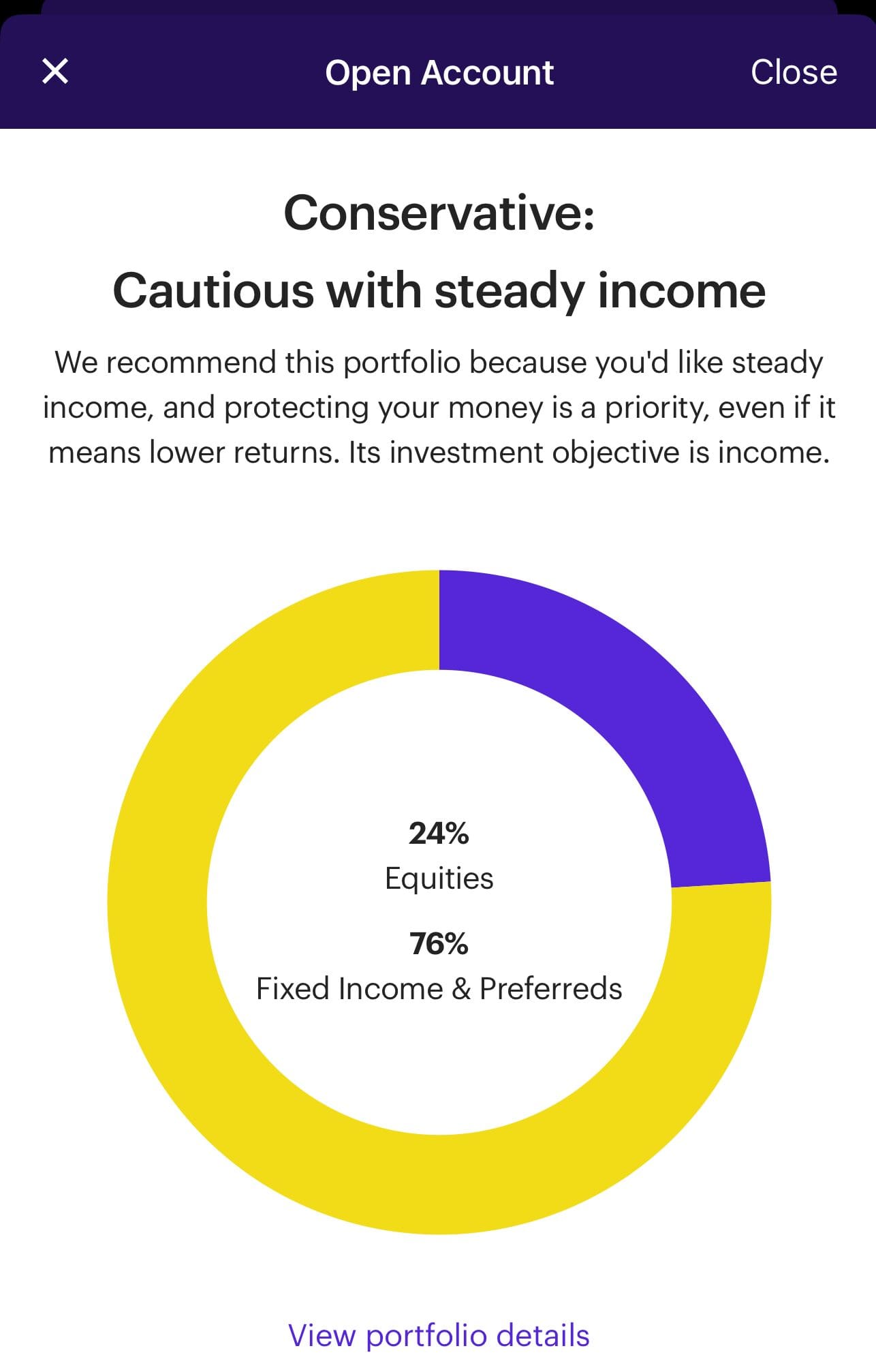
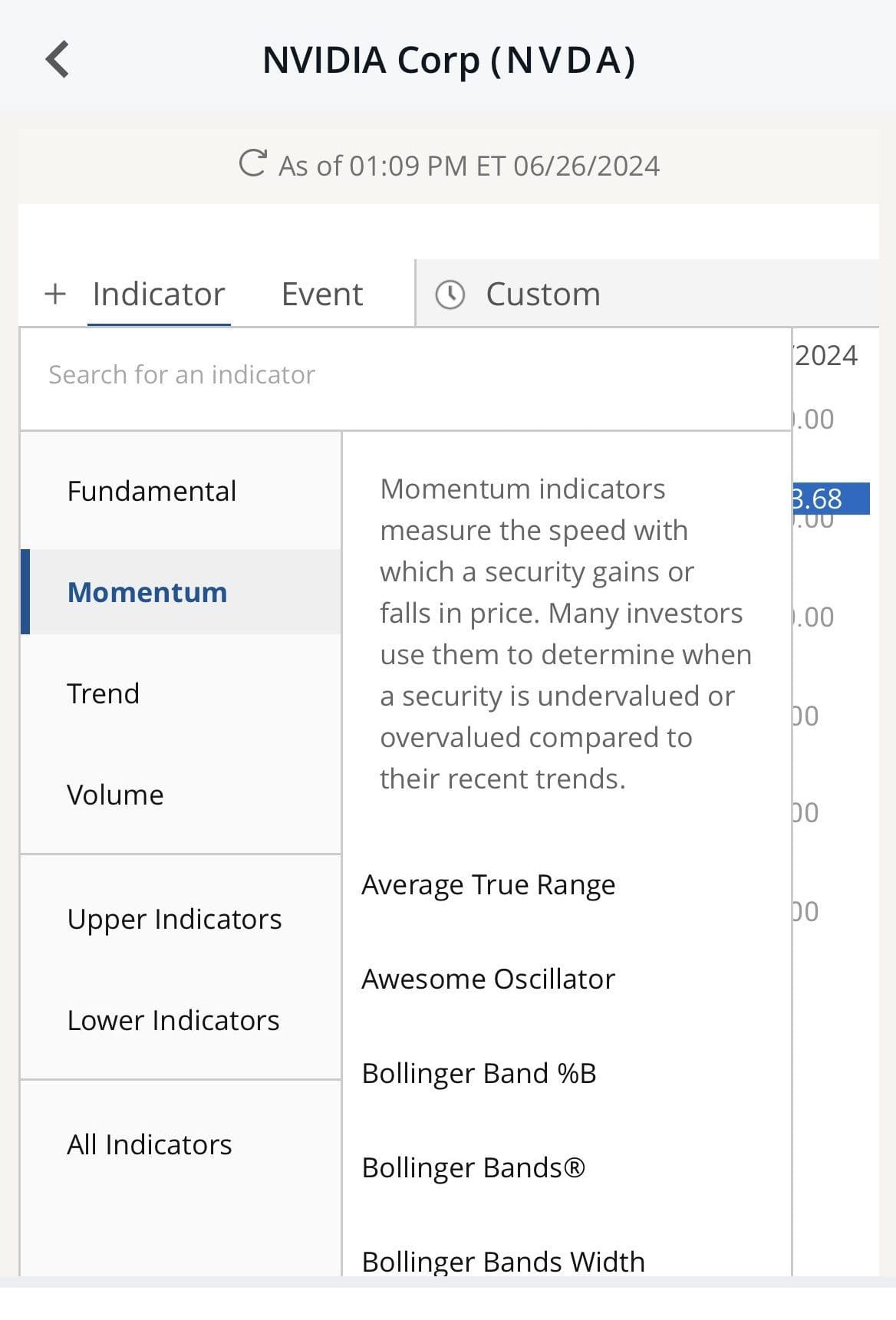
E-Trade’s Core Portfolios is a standout feature for those who want a simple, automated approach to investing. It pairs expert guidance with automated technology to manage your investments, making it easy to set up a portfolio that aligns with your financial goals.
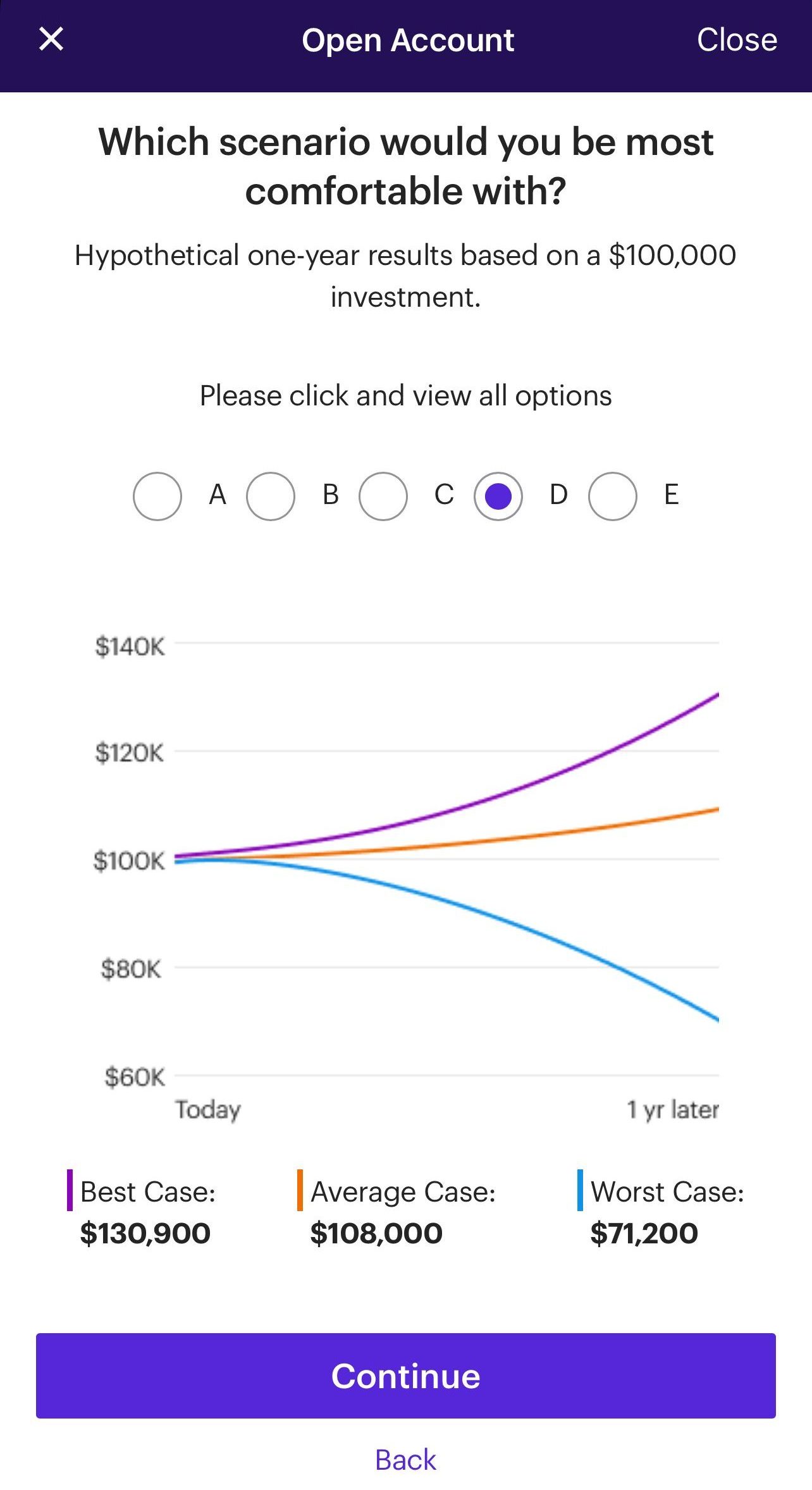
One of the things that makes E-Trade excel is its ease of use, allowing you to adjust your investment strategy as your goals change, and providing a hands-off experience with regular rebalancing and a low annual advisory fee of 0.30% .
-
Retirement Accounts
E-Trade is our winner if you're focused on retirement investments, as it offers more options and experience.
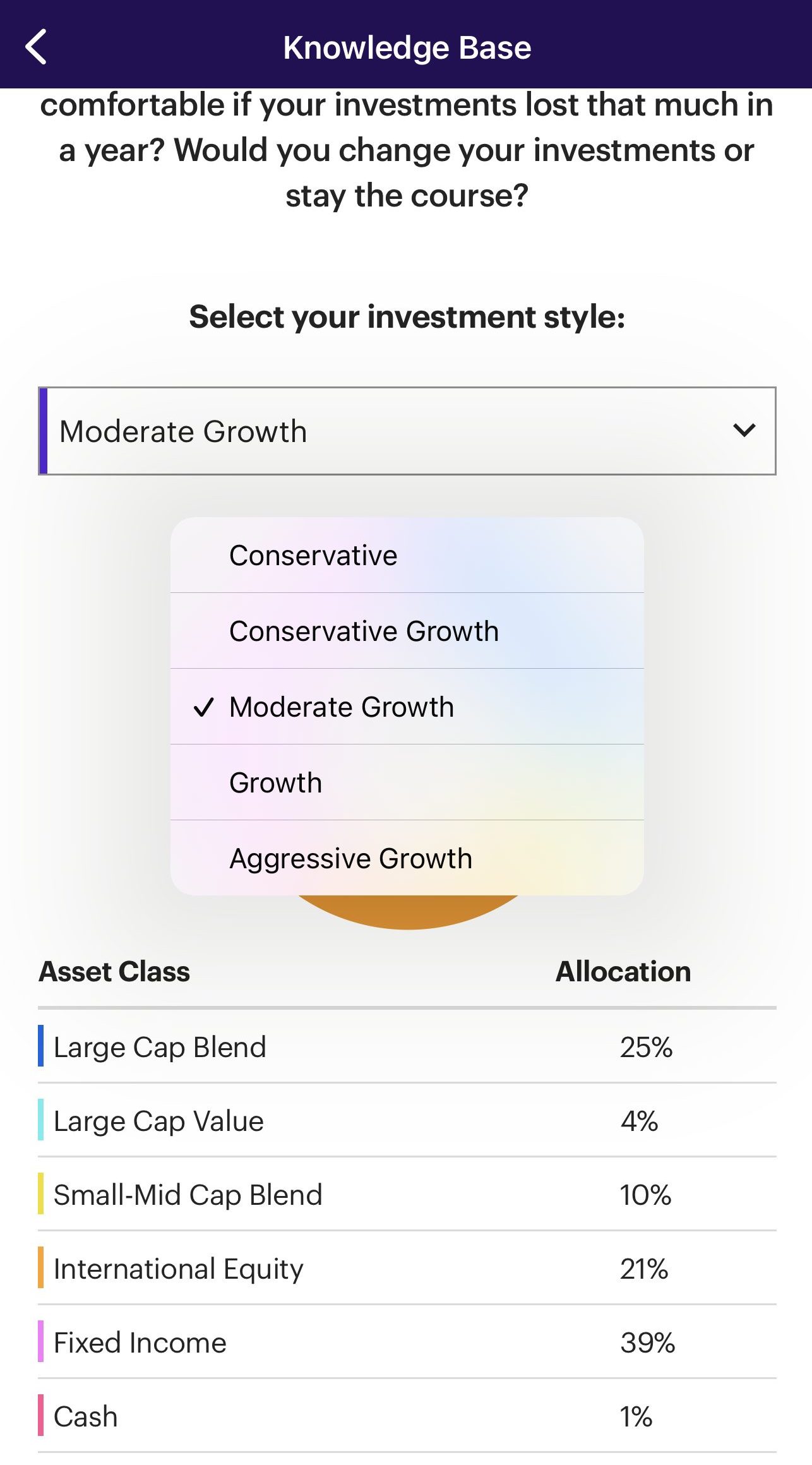
E-Trade stands out with its wide range of retirement account options, including traditional and Roth IRAs, as well as more specialized accounts like Rollover IRAs, Beneficiary IRAs, and even IRAs for minors.
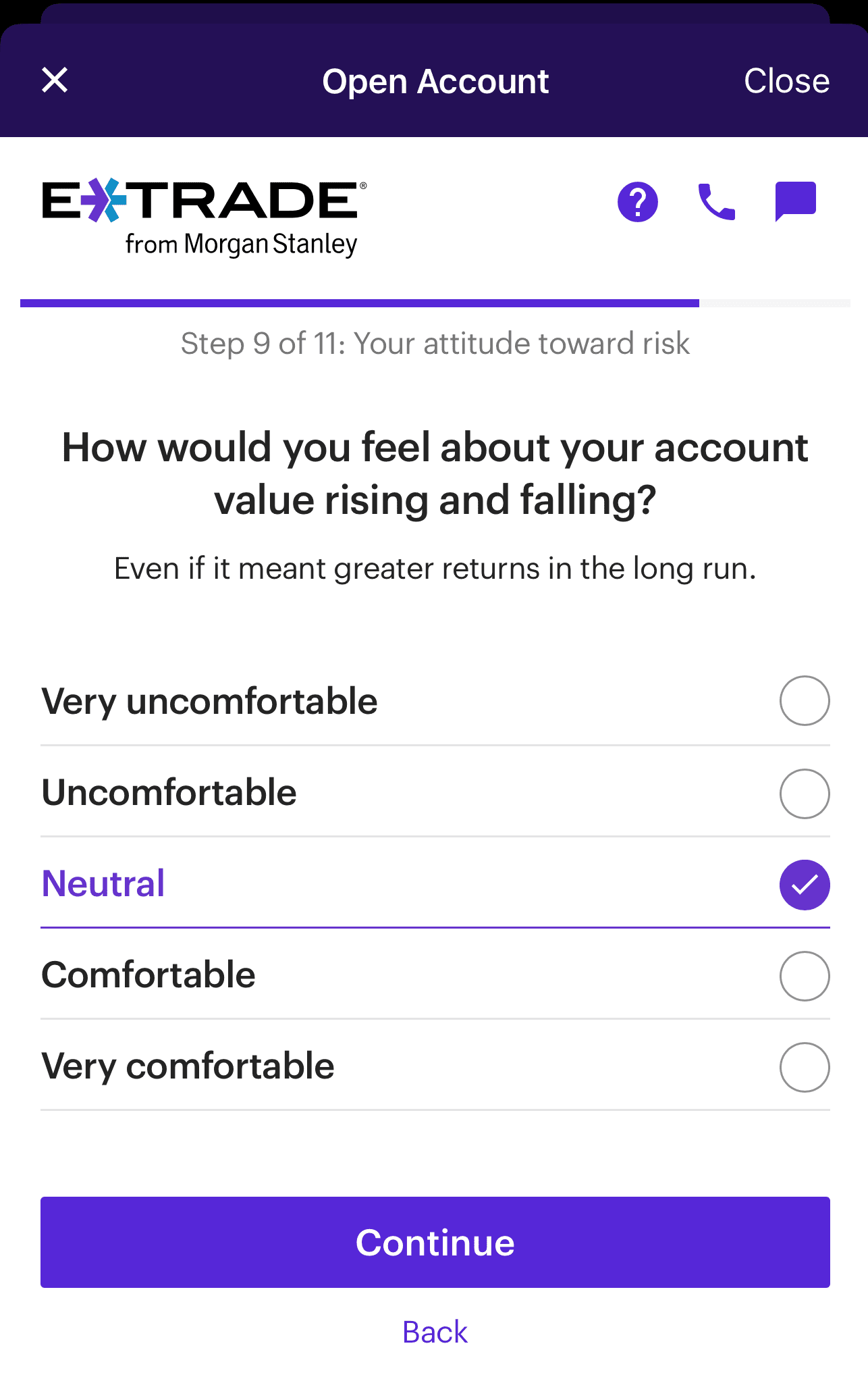
E-Trade also offers the E-Trade Complete IRA, designed specifically for investors over 59 1/2, allowing easy access to savings with features like anytime withdrawals and a free debit card.
JP Morgan Self-Directed Investing focuses on simplicity and integration with its banking services, offering traditional and Roth IRAs with no annual fees and commission-free trades.

However, the options are somewhat limited, as JP Morgan doesn’t provide more specialized retirement accounts like rollover or beneficiary IRAs.
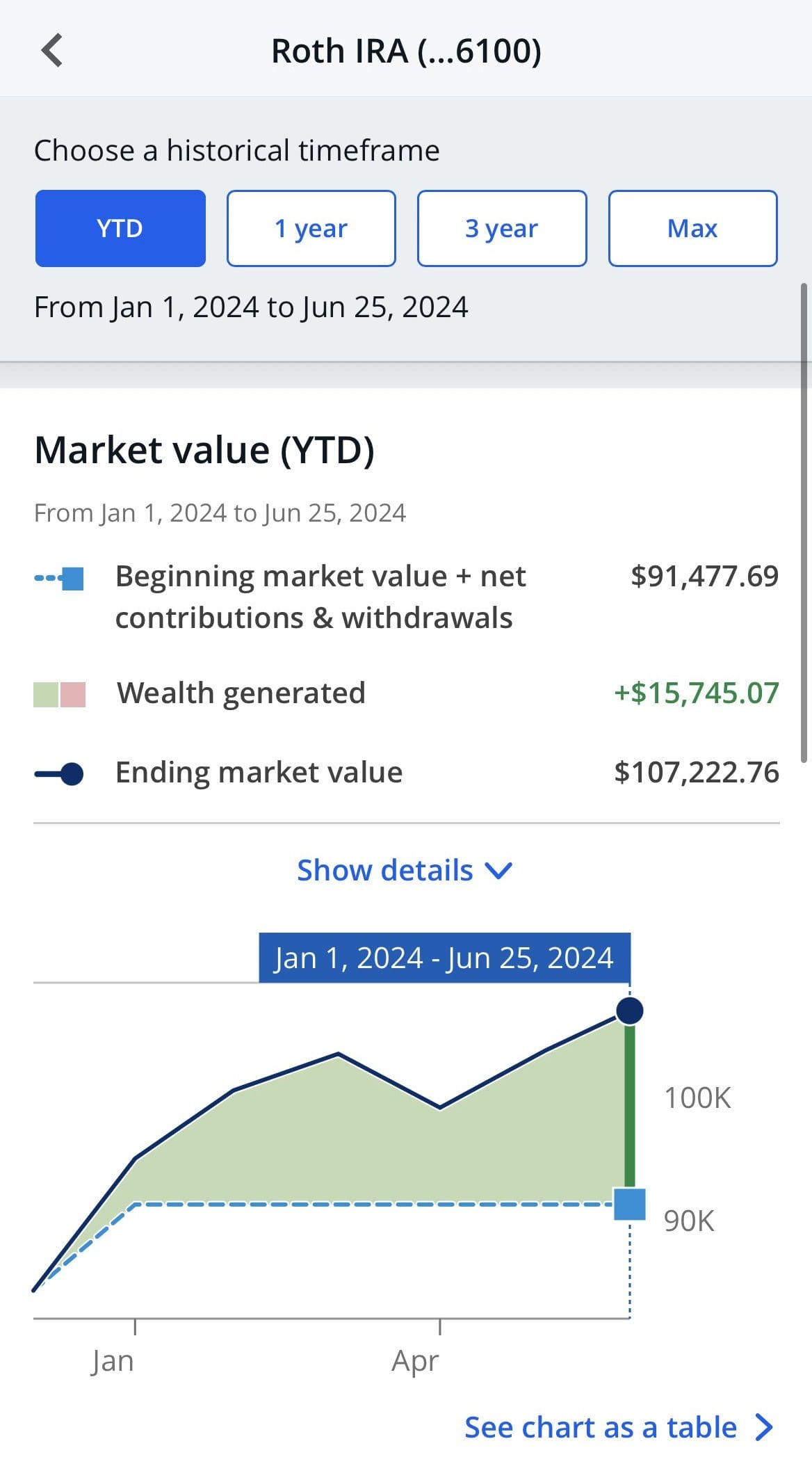
-
Fees
When it comes to fees, both platforms have similar offerings.
JP Morgan Self-Directed Investing and E-Trade provide commission-free trading for U.S. stocks, ETFs, and mutual funds, along with options trading at $0.65 per contract.
Etrade Core Portfolio | JPM Self-Directed Investing | |
|---|---|---|
Fees | 0.30% | $0
$0 online commission on U.S. listed stocks and ETFs and $0.65 per-contract |
When it comes to robo advisory, the E-trade robo advisor fee is fixed, 0.30%, which can be good for those who manage high balances.
-
Cash Management And Savings Rates
When it comes to banking options, E-trade is our winner.
E-trade Premium Savings | JPM Self-Directed Cash APY | |
|---|---|---|
Savings APY | 3.75%
| 0.01% – 3.99% |
JPM Self-Directed Investing integrates seamlessly with Chase bank accounts, which is a big plus if you’re already a Chase customer. This integration allows you to easily move money between your investment and banking accounts, making the overall management of your finances smoother.
However, there is no stand-alone cash management for JPM self-directed customers, and the interest rates on uninvested cash are quite low, typically around 0.01%
E-Trade offers a more traditional banking experience through its Premium Savings Account and checking accounts, managed by Morgan Stanley Private Bank.
The Premium Savings Account offers a competitive interest rate, with no minimum deposit requirement.
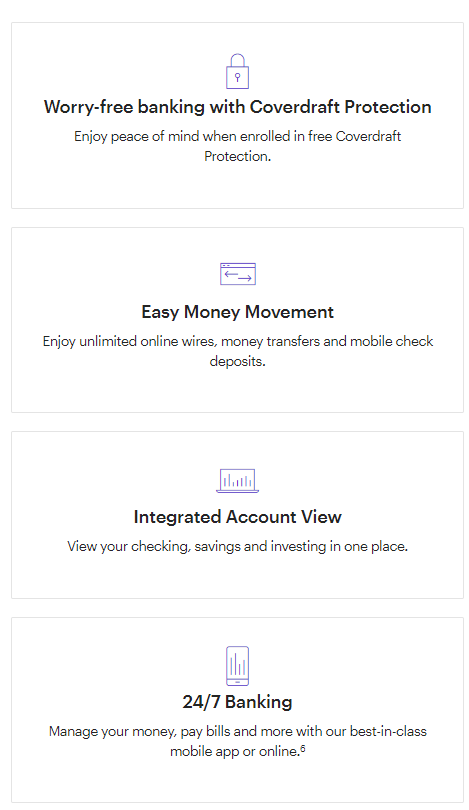
E-Trade’s checking accounts also provide convenience, with features like unlimited ATM fee refunds and online bill pay, making them ideal for everyday banking needs.
-
Wealth Management Options
JP Morgan is our winner when it comes to wealth management.
Thanks to its partnership with Morgan Stanley, E*TRADE provides access to a comprehensive range of wealth management services, including personalized financial planning, customized investment strategies, and a broad selection of investment products.
J.P. Morgan gives you two great options for personalized financial advice: Personal Advisors and Private Client Advisors. Personal Advisors offer convenient virtual financial planning, giving you ongoing advice and access to smart, expert-built portfolios with tax-efficient features.
On the other hand, if you’re looking for something more exclusive, J.P. Morgan Private Client Advisors are ideal.
They focus on clients with $100,000 or more in investable assets, offering a one-on-one relationship that includes a custom portfolio, continuous guidance, and a comprehensive approach to managing your investments, retirement plans, and financial goals.

Bottom Line
JP Morgan is best for the average investor seeking a simple platform with good investing features or Chase customers who need an integrated banking and investing experience.
However, E-Trade is our winner in this comparison due to its broader selection of retirement accounts, its set of tools for advanced traders, attractive banking options, and the Core Portfolios robo-advisor service.
How J.P. Morgan Self Directed Compares to Other Online Brokers
Both offer similar tools for the average investor or trader, but Merrill is better at automated investing. Here's our full comparison:
J.P. Morgan Self-Directed Investing vs. Merrill Edge: Compare Brokerage Accounts
If you're an experienced investor or trader, IBKR may be a better option. If you're a Chase customer or prefer simplicity, consider JP Morgan.
Interactive Brokers vs. J.P. Morgan Self-Directed Investing: Which Broker Wins?
Vanguard offers a better approach for serious investors, while JP Morgan's self-directed is better for beginners and advanced traders
Vanguard vs. J.P. Morgan Self-Directed: Which Broker is Best For You?
Schwab surpasses JPM self-directed in most categories, including self-directed investing, robo advisory, and technical analysis.
Schwab vs. J.P. Morgan Self-Directed: Which Brokerage Is Best?
Fidelity is our winner due to its investment options, research tools, advanced trading features, and excellent retirement planning services.
J.P. Morgan Self-Directed Investing vs. Fidelity : A Side-by-Side Comparison
JP Morgan wins when it comes to fundamental investing tools, but Robinhood is better for technical analysis and trading. Here's why:
J.P. Morgan Self-Directed Investing vs. Robinhood: Compare Brokerage Accounts



